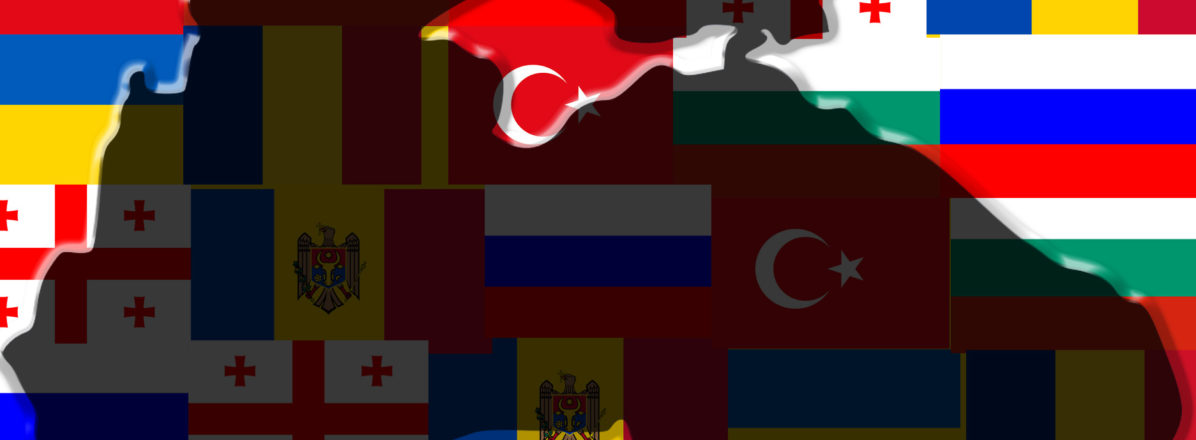A nation must think before it acts.

The Black Sea region in recent years has been marked both by sharp shifts and by intractable dilemmas. The biggest shift is Russia, which has expanded its military role throughout the broader Black Sea region even as it stumbles into conflicts with most of its neighbors. A second shift is in Turkey, where relations with other Western powers are at their lowest ebb in decades. Third, the West itself appears unsure whether it will continue pursuing its strategy of integrating Black Sea countries into NATO and the EU. Fourth, China is playing a bigger role in the Black Sea region than it ever has before. Every great power that touches the Black Sea, in other words, has a strategy that is currently in state of flux.
Geopolitical shifts have coincided with persistent problems. Most notably, the region’s conflicts—some frozen, some less so—remain no closer to resolution. From Moldova’s breakaway Transnistria region, to Georgia’s Abkhazia and South Ossetia, to the open wound of Ukraine’s Donbas—none of these conflicts is closer to resolution this year compared to last. If anything, the passage of time has frozen divisions and reduced the incentive to compromise. One might consider Syria part of the broader Black Sea world insofar as that country’s civil war has drawn in Russian and Turkish intervention, and in that Russian warships en route to Syria sail through the Black Sea. Yet, adding Syria to the mix would make the picture no brighter. True, the ISIS Caliphate has collapsed. True also that Russia has declared “mission accomplished” and promised, now for the third time, to withdraw its military forces. Yet, fighting still rages, if perhaps slightly less intensely than a year earlier. There is no guarantee that the new balance of forces within Syria is any more stable than a year ago.
The economic picture of the Black Sea looks slightly brighter, if no less complicated. Russia’s economy has emerged from recession, but Turkey’s is reeling from sharp currency devaluations. And the regional economy remains divided by politics. As Russia and Turkey have improved their political relations, Russia has removed some trade sanctions that it imposed on Turkish firms. But Russia continues to impose a punishing tariff on Ukrainian imports, in response to Kyiv’s decision to sign a trade agreement with the European Union. Kyiv, in response, levied countermeasures against Russia. Trade has declined to a trickle.
Yet, the conflict between Russia and Western countries is not the only dividing line in the Black Sea. Turkey’s relations with Western powers are increasingly adversarial, as Turkey blames the West for funding and arming Kurdish groups that it considers terrorists. The West meanwhile criticizes Turkey for cracking down on its domestic opposition. Turkey has tacked toward Russia in response, and some analysts even ask whether Turkey may leave NATO. Such a move remains unlikely, but it underscores the extent to which the international politics of the Black Sea region are in flux. Understanding the drivers of change is no simple task, particularly given the complexity and opacity of both domestic politics and foreign policy decision-making in many of the region’s countries. Nevertheless, a proper understanding is essential, particularly as the United States and Europe remain deeply involved in the region, funding the Ukrainian government, imposing sanctions on Russia, using Turkish airbases to bomb ISIS, importing gas, conducting trade, and participating in military alliances. The Black Sea is near the top of U.S. and European policy makers’ agendas in ways that many people do not even realize.
To understand changes in the Black Sea region, FPRI will be continuing to publish Black Sea Strategy Papers throughout 2018. Key themes will include:
- Russia’s changing ambitions and capabilities in the region
- Frozen and non-frozen conflicts
- Turkey’s domestic politics and its relations with neighbors
- China’s One Belt One Road initiative and its growing Black Sea influence
- Successes and failures of Western initiatives in the Black Sea




